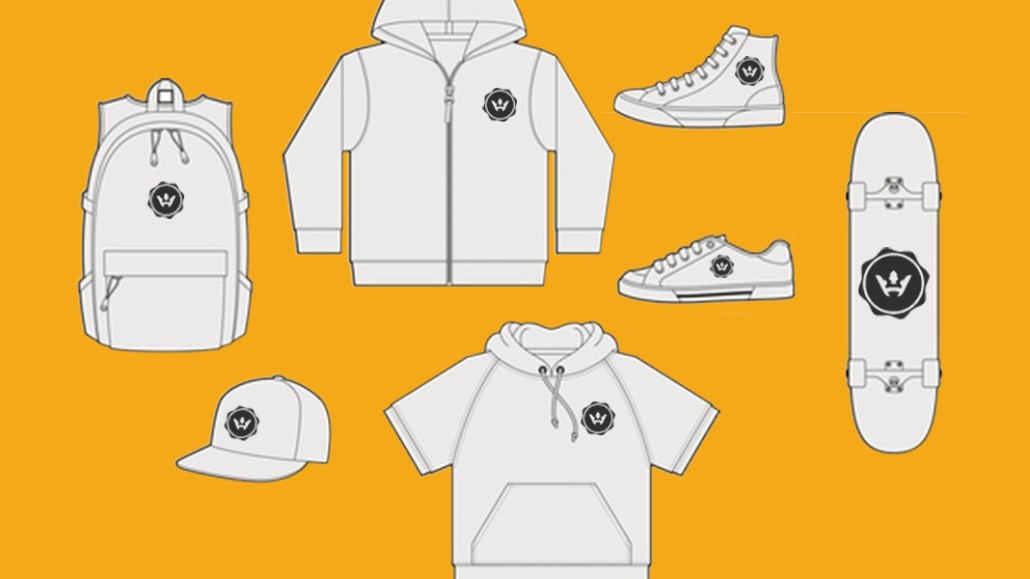Secure your place at the Digiday Media Buying Summit in Nashville, March 2-4

The next phase of the impacts of the coronavirus is having crippling effects on media businesses, their revenue streams and their staff. For streetwear publisher Highsnobiety, staff cuts also mean closing its commerce division.
This week Highsnobiety laid off 25% of its workforce. Out of the 51 people let go, 38 employees were based in Berlin, Germany, and 13 in the U.S. Roughly eight staffers were from the commerce division based in Berlin, according to sources.
“Covid-19 is now beginning to hit us at our very core. And, for a business like ours, our core is our people,” wrote founder David Fischer on LinkedIn, April 1. “Cutting costs, taking voluntary salary cuts, and making other tactical adjustments are not enough to get the company through this crisis.”
In an all-hands commerce team Zoom meeting on Monday, Fischer explained he was proud of the accomplishments from the commerce team but, “after a lot of deliberation, they decided that the division couldn’t exist because brands and vendors refused to ship items or even do production,” wrote branded content freelancer, Chris Erik Thomas.
In an emailed statement, the publisher said: “We are very much still in the direct-to-consumer businesses. We are reimagining this space in light of the devastating impact covid-19 has on people and companies, and therefore are focused in on our private label projects.”
Highsnobiety was one of a few publishers who invested in product creation for its commerce business, rather than just peppering its site with affiliate links. The problem is that, in times of economic downturn, restricted movement, rapid changes in consumer demand and a knock-on effect on all elements of the supply chain, the latter is much more flexible and risk-averse. While affiliate models present challenges like stock shortages for publishers during the spread of coronovirus, those relying on brands for their supply chain and co-creation will be left exposed.
The 15-year-old publisher’s first major bet in commerce emerged in May 2019 when it launched an online shop with an exclusive Prada Linea Rossa capsule collection, although it had dabbled with ad hoc product co-creation with brands in the years prior. In 2018, the publisher received $8.5 million in funding led by Felix Capital to realize its content and commerce ambitions. At the time, Fischer envisioned contributing to 30% of the company’s total revenues.
The goal was to work directly with brands to sell products on Highsnobiety’s site. These weren’t always exclusive but often sold within a limited time frame and ideally ahead of other retailers, as was the case with the Prada collection.
Dealing in hype-based luxury streetwear, Highsnobiety has always been able to sell out products. “Across the office, cheers would erupt from the commerce team as their latest drop on the e-commerce site sold out within minutes. It felt like a golden era for the brand,” wrote Thomas.
Thre’s a sliding scale of commerce operations. The majority of commerce publishers have affiliate or referral models where they receive a commission for sending traffic to retailers’ sites. Others have contracts with third-party companies, like Spreadshirt, to customize or brand merchandise for other third-party fulfillment companies, like Shopify, to manage orders and shipping. The most invested publishers will create or co-create products that they store and ship, which costs money.
“Those are the kind that will be struggling at this time,” said James Bentley, U.K. strategy director at affiliate platform Awin. “There are obvious gains when publishers have a highly loyal audience who are invested in the products and brand. The challenge is during market contraction, the flexibility in not having overheads is an asset to a business.”
Now, even major retailers like Next, TK Maxx and River Island are closing distribution centers to stop the spread of the virus. Logistics like accessing stored produce, delivery companies getting products to people and brands willing to spend time and money on longer-term co-creation projects threaten to throttle publishers’ commerce businesses.
According to sources, Highsnobiety will continue to sell its own in-house products, like its collection of shirts and sweatshirts called “Inner life” which are designed by its in-house team and manufactured using its own supply chain as opposed to a brand’s. Sweatshirts retail at £88 ($109). These sell surprisingly well and the margins are higher compared with co-created products.
This article has been updated to include comment from Highsnobiety about focussing on its direct-to-consumer private-label projects.
More in Media

From feeds to streets: How mega influencer Haley Baylee is diversifying beyond platform algorithms
Kalil is partnering with LinkNYC to take her social media content into the real world and the streets of NYC.

‘A brand trip’: How the creator economy showed up at this year’s Super Bowl
Super Bowl 2026 had more on-the-ground brand activations and creator participation than ever, showcasing how it’s become a massive IRL moment for the creator economy.

Media Briefing: Turning scraped content into paid assets — Amazon and Microsoft build AI marketplaces
Amazon plans an AI content marketplace to join Microsoft’s efforts and pay publishers — but it relies on AI com stop scraping for free.





